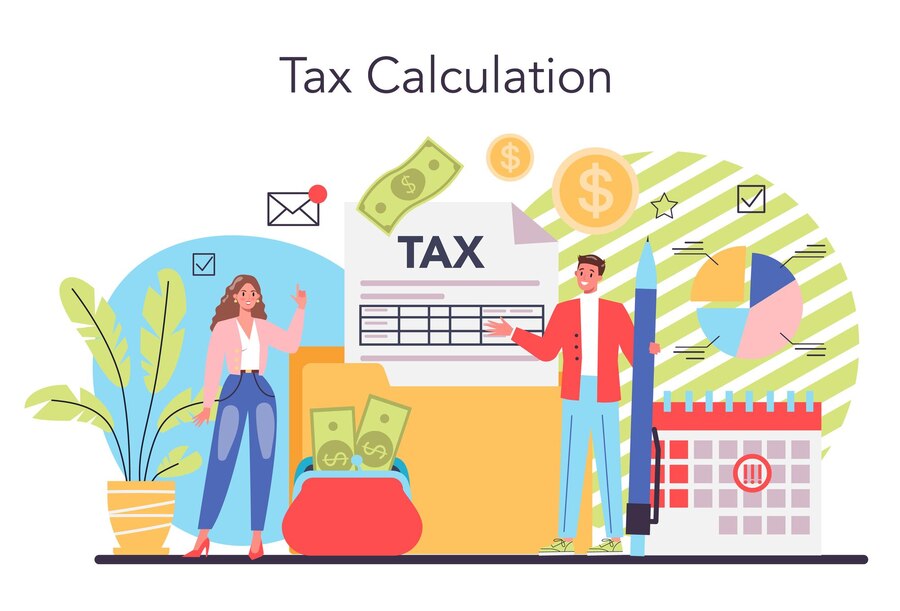There are many taxes levied on the Centre as well as the State in India. Well, almost everyone knows about income tax and GST — Goods and Services Tax. Then there is another less-known or hardly known tax that professionals and salaried people pay and that goes by the name of Professional Tax. Anybody who has stared at that little deduction under the term “PT” in his/her pay slip-it is professional tax deducted from a person’s salary.
In this elaborative article, we shall learn what professional tax is, professional tax slab rates, its calculation, and professional tax due dates.
Let us delve deeper for a better understanding of this state-imposed tax.
What Is Professional Tax?
Professional taxation in India refers to a levy by a state government on tax payments that have to be made by salaried employees, as well as any other professionals in the fields of law, medicine, and chartered accountancy. Generally, this is deducted every month by the employer on behalf of the state. The amount to be deducted would depend upon professional tax slab rates that vary from state to state.
It is a source of revenue to state governments and hence is in the application of a number of welfare schemes. Professional tax is levied by the state government but not all states do this. Few states such as Gujarat, Maharashtra, Tamil Nadu, West Bengal, Andhra Pradesh, Karnataka, etc so others such as Haryana and Delhi do not levy it.
Professional Tax Slab Rates
All states in India have the prerogative to decide on professional tax slab rates. The slab is provided based on salary or income derived. Normally, with the rise in the level of income, the percentage of professional tax increases.
The sample of professional tax slab rates in some of the prominent states can be seen hereafter:
1. Maharashtra
To create a table structure for the provided information, you can format it like this:
| Salary Range (per month) | Gender | Deduction (₹) |
|---|---|---|
| Up to ₹7,500 | Male | Nil |
| Up to ₹10,000 | Female | Nil |
| ₹7,501 to ₹10,000 | Male | ₹175 per month |
| Exceeds ₹10,000 | Male | ₹200 per month (₹300 in February) |
| Total Deduction per Year | ₹2,500 |
2. West Bengal (WB Professional Tax)
Here’s how the table can be structured for the provided salary ranges:
| Salary Range (per month) | Deduction (₹) |
|---|---|
| Up to ₹ 10,000 | Nil |
| ₹ 10,001 to ₹ 15,000 | ₹ 110 per month |
| ₹ 15,001 to ₹ 25,000 | ₹ 130 per month |
| ₹ 25,001 to ₹ 40,000 | ₹ 150 per month |
| Above ₹ 40,000 | ₹ 200 per month |
3. Karnataka
Here’s the table based on the new salary ranges and deductions:
| Salary Range (per month) | Deduction (₹) |
|---|---|
| Up to ₹ 15,000 | Nil |
| Above ₹ 15,000 | ₹ 200 per month |
4. Tamil Nadu
Here is the table formatted based on the given salary ranges and deductions:
| Salary Range (per month) | Deduction (₹) |
|---|---|
| ₹ 3,500 or less | Nil |
| ₹ 3,501 to ₹ 5,000 | ₹ 22.50 per month |
| ₹ 5,001 to ₹ 7,500 | ₹ 52.50 per month |
| ₹ 7,501 to ₹ 10,000 | ₹ 115 per month |
| Above ₹ 10,000 | ₹ 182.50 per month |
These are but a few examples. Other states set different professional tax slabs, so employees and employers should check their state laws for clarification.
How is Professional Tax Deducted?
The professional tax, thus collected, is to be deducted by the employers from the salaries of their employees. In salary, PT is deducted on a monthly basis, and the amount so deductible comprises the salary earned by the individual as well as the slab rates of the respective state.
Here’s how PT deduction generally works:
The employer calculates the employee’s monthly salary and determines the slab applicable for professional tax.
The system deducts the exact calculated amount from the salary every month under PT.
The employer pays this amount to the state government on behalf of the employee.
How to Calculate Professional Tax
Computing professional tax is a very simple process. In the case of salaried employees, the deduction is based on the employee’s income and slab of the particular state.
For instance, according to WB professional tax, if an employee earns a monthly income of ₹16,000, the system deducts ₹130 as professional tax.
In case they are self-employed, say professionals like lawyers and doctors, they need to get them enrolled for PTax with the respective state government. Enrollment would imply filing one’s professional tax return and making payment of the tax according to the income slab.
Professional Tax in Salary: Importance and Exemption
Professional tax is one of the key components that go into designing the salary. It is a statutory tax and also incurs penalties if you do not pay it on time. It becomes the responsibility of the employer to deduct the correct amount of PT and deposit it with the government on time.
However, no one is liable for paying professional tax. There are a few cases of individuals that do not come under the ambit of payment of professional tax. Here is a list of these:
Parents/guardians of persons suffering from permanent disabilities
The drawing of a wage less than the minimum salary limit laid down by the state government
Senior citizens above the age of 65 years
Apart from these, states allow exemption on the basis of their local provisions.
Professional Tax Payment Date and Penalty
Professional tax payment date is one of the most important factors which every employer and self-employed professional should remember. PT payment frequency is monthly or quarterly in most of the states.
The due date for Maharashtra is every year, i.e., 31st March for employers having less than 20 employees, and in the case of an employer having more than 20 employees, it is every month, i.e., the last day of each month.
Due date for professional tax payment in West Bengal for the employers falls within 30 days from the end of the year/month according to the monthly or annual.
The late remittance of PT carries penalties, which may be in the nature of a late fee or interest on the amount payable.
PT Return Filing and Payment
Every employer and professional must file a return on professional tax periodically as stipulated by the state. The general trend in PTax enrollment and return filing appears below:
Registration: Employers must register their organizations with the state tax department. Similarly, self-employed individuals must register for professional tax in their respective states.
Deduction: Employers must deduct professional tax from the salary of all employees who fall under the professional tax slab each month. A self-employed individual works out the tax on his / her own based on the level of his / her income.
Return Filing: The employers must file returns periodically after deduction. The periodicity for return filing may be monthly, quarterly, or half yearly and shall vary from state to state.
Payment: Pay the deducted amount along with the return filing to the state government before the due date for professional tax.
Professional Tax Percentage: How Is It Determined?
While the percentage essentially depends on the individual’s monthly income, the state government decides it. Though the slabs and percentages might be different from state to state, generally these fall in a range that would not hurt the employee.
Most of the states allow total professional tax in a year at ₹ 2,500 per annum to avoid affecting the low-earning people disproportionately.
PT Limit and Variations in States
The PT limit is the limit up to which an individual needs to pay the same as professional tax. For most states, it is ₹ 2,500 yearly, and even if your salary increases, the maximum professional tax deduction will never move beyond this limit.
However, state-specific legislations may demand different PT limits, which must be in the mind of employers and employees for getting their compliance right.
Importance of Professional Tax
Though it might seem an insignificant deduction, the professional tax plays a very important role in the welfare of state governments. Authorities spend the revenue collected on implementing different local welfare schemes, which helps keep public services functioning correctly.
It is, therefore, very important that both the employee and the employer are knowledgeable about professional tax slabs, PT deduction in salaries, and professional tax due dates to avoid penalties. Also, it helps professionals like doctors, lawyers, and CAs keep track of their finances. Therefore, the slabs concerning professional taxes are of vital importance for every employee and employer.
Conclusion
It therefore constitutes a sizable contribution in the tax structure of India at the state level. Professionals should be aware of the applicable rates, the method for deducting PT from salary receipts, and the reasons for timely filing. Every salaried employee and professional needs to know this information.
Any employer must ensure they follow the due date for professional tax payments and file returns properly to avoid attracting any penalties. Employees should know PT deductions and ensure they match their state’s professional tax percentage and limit.
The article explains how professional tax works in India, helping individuals and businesses stay informed and compliant.
Must Read About What is the Full Form of GST? Learn GST Features & Components

